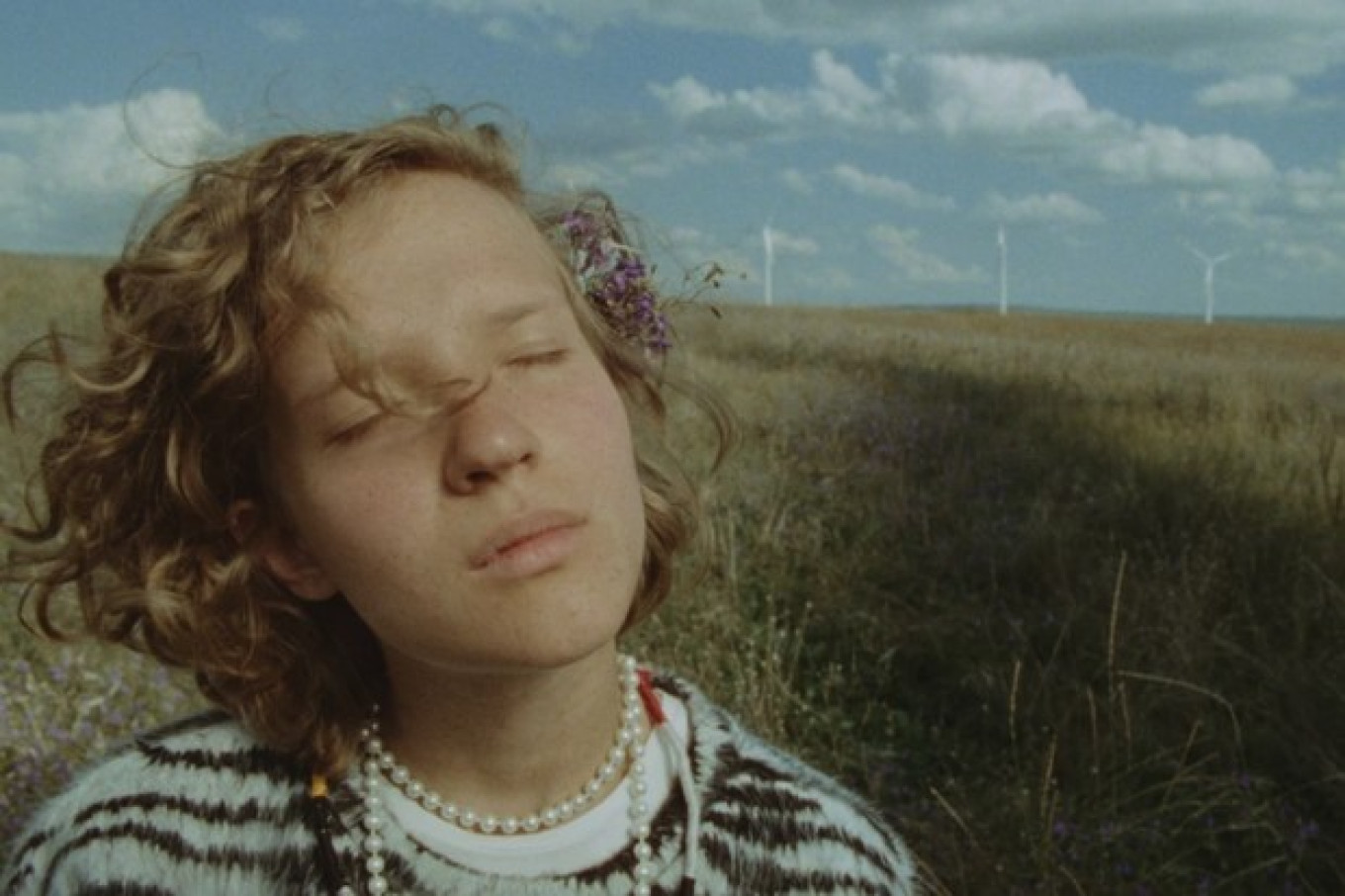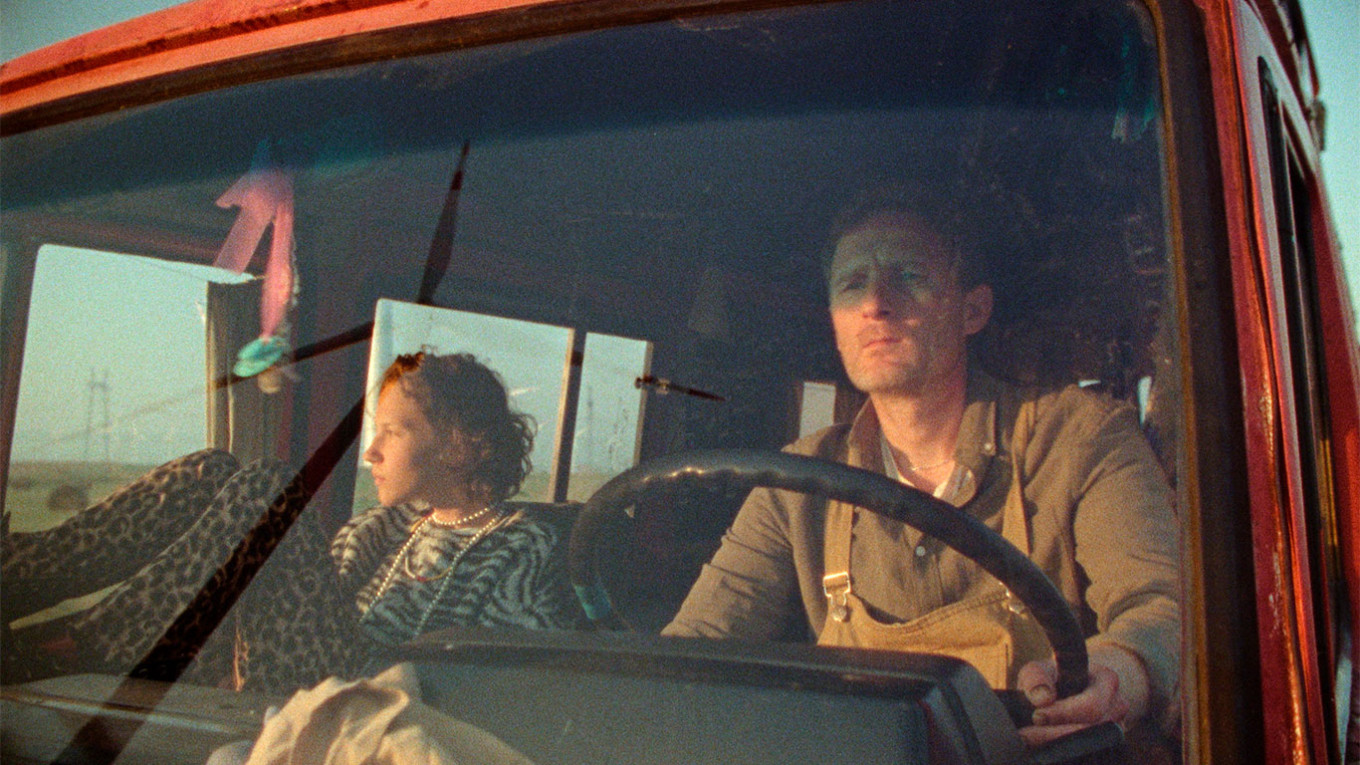In the opening scene of “Grace,” a new film independently funded and produced in Russia by director Ilya Povolotsky, a teenage girl has just gotten her first period. But it isn’t her mother who helps her as she enters womanhood. Instead, a woman she doesn’t know steps out of her father’s minivan and hands her a tampon.
The girl’s mother is dead, her ashes in an urn that the girl tenderly holds from time to time. After her mother’s death, she and her father journey across Russia in a minibus, travelling from Kabardino-Balkaria in the south to the shores of the White Sea in the northwest. They support themselves by showing films with a mobile cinema, which they set up village yards or in vast, untamed landscapes.
The isolated residents of the hinterlands eagerly welcome the outsiders, intently watching the big screen as images of "Brother" by Alexei Balabanov or "Loyalty" by Nigina Sayfullaeva flicker before them. They buy beer and soft drinks from the teenage girl even though those transactions are not entirely legal. Even more illicit are the discs containing pornography made by the father, with their fellow travelers as the main protagonists: lonely truck drivers who avail themselves of the services of prostitutes.
From time to time, the father and daughter must flee from local police. They are not alone. It seems that only a life outside the law allows this family, as well as many other inhabitants of the Russian periphery, to survive. Some sell used books from a cart, drowning their depression in alcohol, while others peddle cheap gasoline in jerry cans. The father and daughter are always going off the main road to avoid roadblocks and police checks.
Russia is a vast country where it’s easy to get lost. Its boundless landscapes are portrayed as bleak and joyless: empty, destroyed houses and poorly maintained roads — a landscape of devastation, but not the devastation of war. There is a house with shattered windows, where a cold wind blows through the rooms. This structure turns out to be a meteorological station guarded by a lonely woman who becomes, briefly, the father’s lover. Cinematographer Nikolai Zheldovich emphasizes this sense of hopelessness with dark green and gray tones so that the director can create his meta-world where the past seems to have not yet dissolved into the present, and the future is uncertain.

The implications of the hinterland’s decline take on a different context when considering contemporary events, as it is precisely from these regions that soldiers are recruited. It seems that the local inhabitants are predominantly characterized by two moods: drowning their joyless existence in vodka or attempting to escape this hopelessness by any means possible. The road trip of the father and daughter is perceived as a kind of freedom. The somber composition belies a rich diversity of cultures, which the viewer hears in conversations among the characters as the father switches languages and dialects.
“Grace” was the only film from Russia showcased at this year’s Cannes Film Festival. It was featured in the “Director’s Fortnight” program, permitted because it was made without any Russian state financing.
Povolotsky told The Moscow Times that the film was well received, “although I was prepared for anything. It would be strange to assume that in the current circumstances, whatever you write or film in the Russian language and from Russia could have any relevance outside the context of what is happening now. I understand and accept it.”
Povolotsky said that his characters’ journey was physical and metaphorical: “It portrays the unspoken traumas between children and their parents. …Between the father and daughter there is the invisible presence of the memory of the loss of a wife and mother. In this small, encapsulated space of an old car that they have been traveling in for 15 years, they carry the weight of their fears, contradictions and pain, unable to articulate their problems.”

But the film is also is built on the traditions of Slavic folk tales, “which depict journeys of initiation. Usually, the heroes are young men who embark on a journey, facing trials, dangers, and difficulties. By overcoming them, they reach a new level of maturity, acquire wisdom and strength, gain fame and recognition. Here, it is a young girl who embarks on such a journey,” Povolotsky said. The long journey to the dark and cold tundra was, Povolotsky said, “a metaphor for the carefree nature of childhood and youth and the challenges of growing up and assuming responsibilities.”
“What you see in the film is the ruins of post-Soviet space, the collapse of that very empire that never revived. But please don't judge too harshly and don't immediately exclaim, ‘Oh, these are ruins of Russia!’ Believe me, Italian ruins are not much different from Russian ruins — they are just older.”
Povolotsky said that for the teenage girl, “the ruins are merely artifacts of civilization, something she is willing to understand but not to take responsibility for. Some young people may choose to remain in this environment, others want to escape and leave it behind. Some choose to live among the ruins and find meaning in it. In any case, they are moving forward and continuing their journey. Life has a way of sorting things out.”
"Grace" has not yet been released in theaters.
A Message from The Moscow Times:
Dear readers,
We are facing unprecedented challenges. Russia's Prosecutor General's Office has designated The Moscow Times as an "undesirable" organization, criminalizing our work and putting our staff at risk of prosecution. This follows our earlier unjust labeling as a "foreign agent."
These actions are direct attempts to silence independent journalism in Russia. The authorities claim our work "discredits the decisions of the Russian leadership." We see things differently: we strive to provide accurate, unbiased reporting on Russia.
We, the journalists of The Moscow Times, refuse to be silenced. But to continue our work, we need your help.
Your support, no matter how small, makes a world of difference. If you can, please support us monthly starting from just $2. It's quick to set up, and every contribution makes a significant impact.
By supporting The Moscow Times, you're defending open, independent journalism in the face of repression. Thank you for standing with us.
Remind me later.







